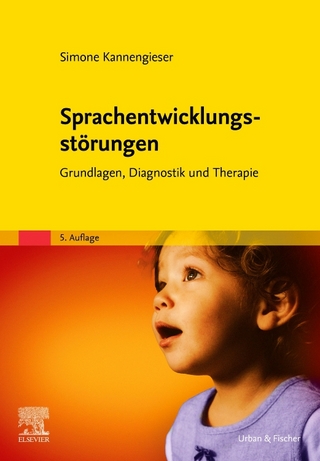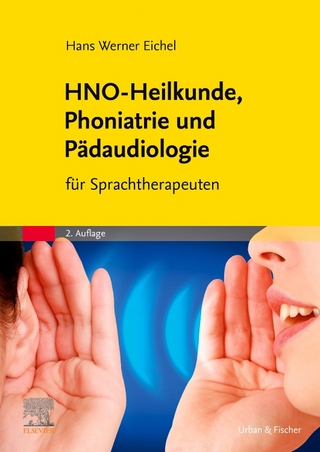
Dysphagia Following Stroke
Plural Publishing Inc (Verlag)
978-1-63550-030-1 (ISBN)
For clinicians treating swallowing disorders in the stroke population, this book provides practical information, bridging the gap between academic and clinical practice with up-to-date research and clinical case examples throughout.
In addition to a thorough overview of dysphagia diagnosis and management, this text focuses heavily on evaluation and management of stroke. Key topics include neural underpinnings of normal and disordered swallowing, swallowing screening, the clinical swallowing examination including cough reflex testing, the expanding array of instrumental swallowing modalities, and the rehabilitation of swallowing including strength training, non-invasive brain stimulation, and skill training. While geared toward practicing clinicians, ''Dysphagia Following Stroke'' is also useful for students in professional training programs.
New to the Third Edition:
*A third author, Kristin Gozdzikowska, bring a fresh perspective as a young clinician and researcher with particular expertise in high resolution manometry and various cutting-edge treatment techniques
*Updated chapters on assessment to include new and emerging instrumental technologies, including high resolution manometry, impedance, and ultrasound
*Updated chapters on management to include the newly described International Dysphagia Diet Standardization Initiative
*New and expanded framework for rehabilitation, with a shift from peripherally focused rehabilitation to neuromodulation of cortical swallowing control
*New and updated research and trends in clinical practice throughout
*Access to a PluralPlus companion site with videos and clinical forms
This thoroughly updated and enhanced edition of ''Dysphagia Following Stroke'' is sure to remain a valued resource for clinicians working with stroke patients in all settings.
Stephanie K. Daniels, PhD, CCC-SLP is a Professor at the University of Houston in the Department of Communication Sciences Disorders. She has practiced as a speech pathologist focused in stroke for over 20 years. Stephanie has published numerous peer-reviewed articles and book chapters. She is an ASHA Fellow and past President of the Dysphagia Research Society.+++++++++++++++++++++++++++++++++++++++++++++++++++++++++++++++++++++++++++++++++++++++++Maggie-Lee Huckabee, PhD practiced as a clinical speech language pathologist for 15 years before the frustration of never knowing 'the answers' led her to an academic career. She is now Founder and Director of the University of Canterbury Rose Centre for Stroke Recovery and Research and Professor in the Department of Communication Disorders in Christchurch, New Zealand. She still hasn’t found 'The Answers' but is trying, with research interests focusing on the complexities of behaviorally-driven neural adaptation and biomechanical change leading to swallowing recovery following neurological injury. In her 15-year academic career, Maggie-Lee has co-authored three books, 14 book chapters and has published 80 peer reviewed scientific papers. A recent research programme has resulted in a reduction in pneumonia rates from 27 to 10%, with a subsequent savings in health care costs for the regional health board of over $1.4 million in one year. For this research, she was awarded one of the top research medals from the University of Canterbury: The Innovation Medal. She is well known as a clinical teacher and is an invited speaker by health systems worldwide to provide clinical training, particularly in rehabilitation practices.+++++++++++++++++++++++++++++++++++++++++++++++++++++++++++++++++++++++++++++++++++++++++++Kristin Gozdzikowska, PhD, CCC-SLP received her Master's Degree from the University of Washington, and worked clinically as a Speech Language Pathologist in acute care and inpatient rehabilitation. Through this work, she developed a specific interest in the assessment and management of swallowing impairments after neurologic impairment. This was expanded in her doctoral research, completed in 2016 under the supervision of Prof Maggie-Lee Huckabee. Kristin completed a Post-Doctoral Fellowship investigating clinical application of High-Resolution Manometry at the University of Canterbury Rose Centre for Stroke Recovery and Research, and is now working in a dual clinical-research role at the Laura Fergusson Trust. Kristin has been as invited to speak at international conferences including the Dysphagia Research Society and the American Speech-Language Hearing Association Convention.
Preface. Foreword by Karen French Montoya. Acknowledgments. Abbreviations. Online Resources. Chapter 1. Introduction to Dysphagia and Stroke. Chapter 2. The Neural Control of Swallowing: From Central to Peripheral. Chapter 3. Normal Swallowing Anatomy and Physiology. Chapter 4. Swallowing Screening in Patients with Acute Stroke. Background of Screening Swallowing in Stroke. Chapter 5. The Clinical Swallowing Examination: History, Patient Interview, Informal Cognitive and Communication Assessment. Chapter 6. The Clinical Swallowing Examination: The Evaluation of the Oral Mechanism.
Chapter 7. The Clinical Swallowing Examination: Assessment of Oral Intake. Chapter 8. The Clinical Swallowing Examination: Predicting Dysphagia and Aspiration. Chapter 9. Adjuncts to the Clinical Swallowing Examination. Chapter 10. The Instrumental Swallowing Examination: The Videofluoroscopic Swallowing Study. Chapter 11. The Instrumental Swallowing Examination: Evaluation of Swallowing Respiratory Coordination-An Auxiliary to the Videofluoroscopic Swallow Study. Chapter 12. The Instrumental Swallowing Examination: Videoendoscopic Evaluation of Swallowing. Chapter 13. The Instrumental Swallowing Examination: Manometric Evaluation of Swallowing. Chapter 14. The Instrumental Swallowing Examination: Ultrasound Evaluation of Swallowing. Chapter 15. Professional Responsibilities: Dysphagia Diagnosis in Stroke. Chapter 16. Diagnosis of Dysphagia in Stroke. Chapter 17. Diet Considerations: To Feed or Not to Feed. Chapter 18. Compensatory Management of Oropharyngeal Dysphagia. Chapter 19. Principles of Rehabilitation for Oropharyngeal Dysphagia. Chapter 20. Rehabilitation of the Peripheral Sensorimotor Swallowing System. Chapter 21. Central Rehabilitation for Oropharyngeal Dysphagia: Extrinsic Modulation. Chapter 22. Central Rehabilitation for Oropharyngeal Dysphagia: Behavioral Adaptation. Chapter 23. Medical and Surgical Management. Chapter 24. Lagniappe. References. Index.
| Erscheinungsdatum | 05.04.2019 |
|---|---|
| Verlagsort | San Diego |
| Sprache | englisch |
| Maße | 152 x 229 mm |
| Themenwelt | Medizin / Pharmazie ► Gesundheitsfachberufe ► Logopädie |
| ISBN-10 | 1-63550-030-3 / 1635500303 |
| ISBN-13 | 978-1-63550-030-1 / 9781635500301 |
| Zustand | Neuware |
| Haben Sie eine Frage zum Produkt? |
aus dem Bereich


